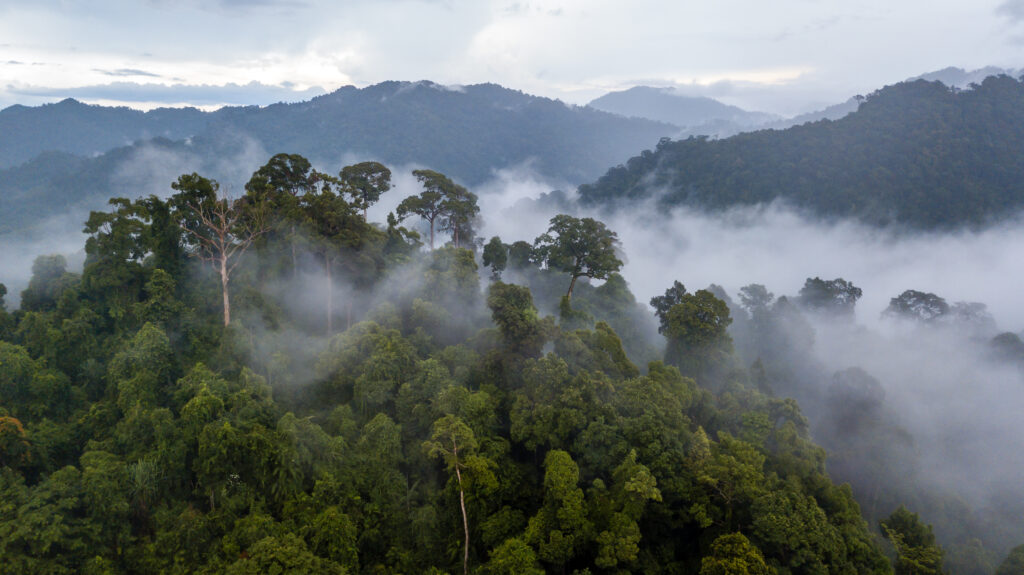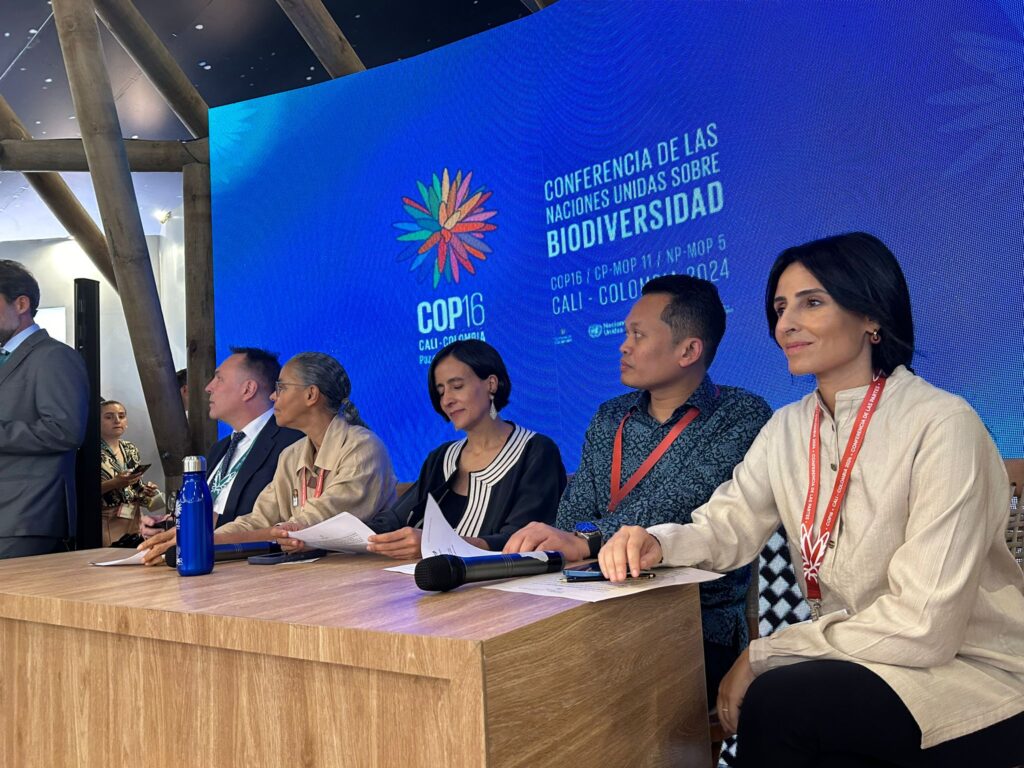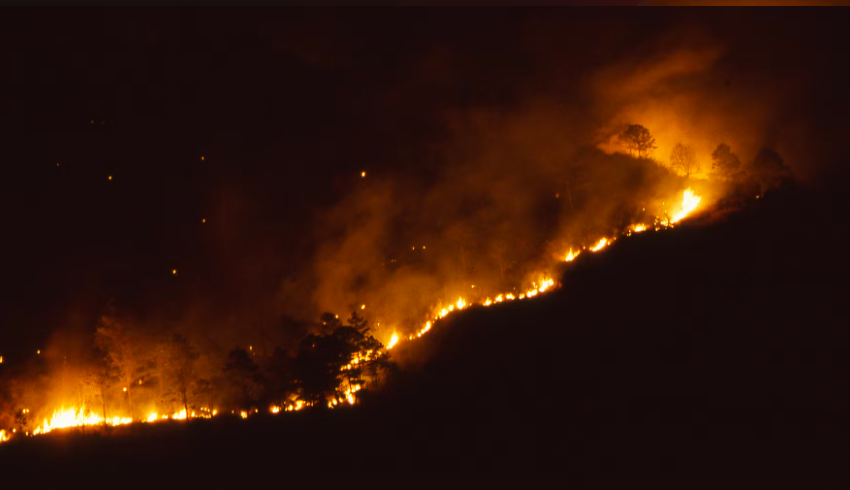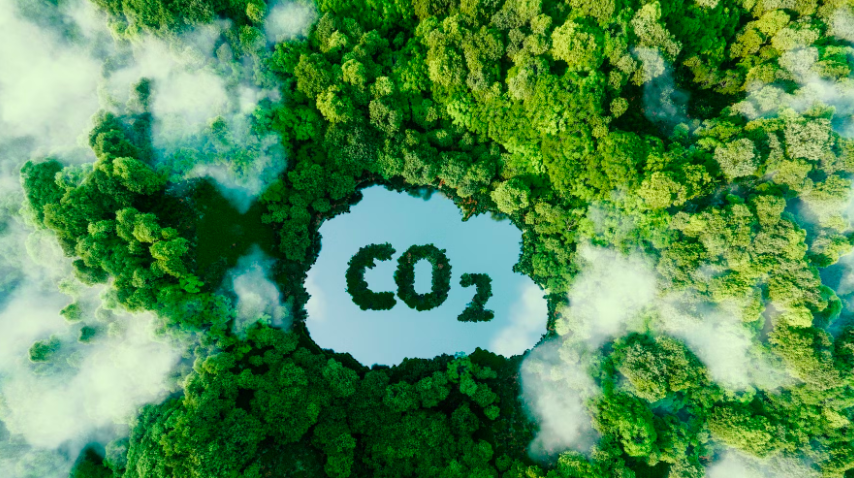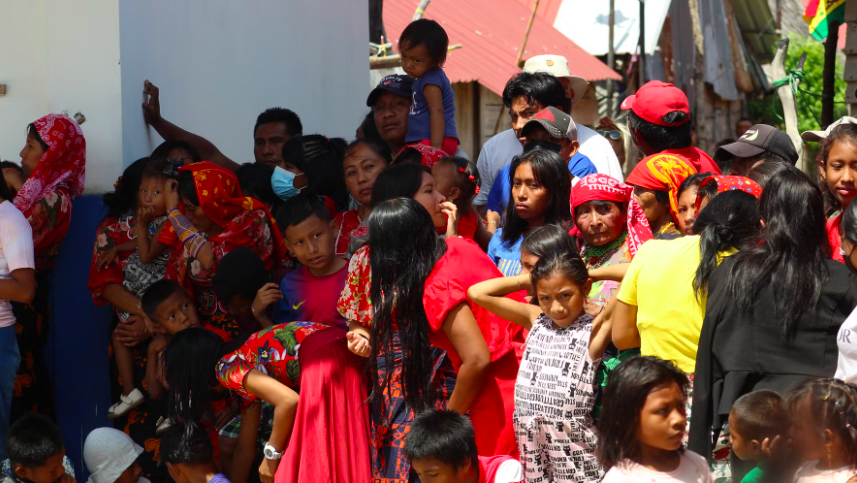
Guardians of the Rainforest and Water in Panama Strengthened Through New Alliance
A newly established alliance in Panama between Indigenous peoples, small-scale farmers, and Forests of the World’s partner, Geoversity, aims to strengthen their rights, protect the rainforests, and safeguard the country’s water supply
Climate change has hit the country with drought, and COVID-19 was used as an excuse to introduce unconstitutional laws that threaten Indigenous peoples and the rainforest. The alliance now strengthens their position in defending against these threats.
Climate change has hit the country with drought, and COVID-19 was used as an excuse to introduce unconstitutional laws that threaten Indigenous peoples and the rainforest. The alliance now strengthens their position in defending against these threats.
Panama, which is otherwise a country not lacking in rain, has experienced the worst drought in many decades in 2023. The water level in the Panama Canal, a key source of income for the country, is at its lowest level since 1950. This has meant a significant reduction in the number of ships passing through the canal daily, which has cost the country a lot of money.
The vast majority of the water flowing to the Panama Canal and providing drinking water to the entire capital city comes from the country’s invaluable rainforests, and many of these sources lie within Indigenous peoples’ territories. While it is not the fault of the Indigenous peoples that the country is affected by drought—due to illegal deforestation and climate change—it is largely thanks to them that the rainforests are still standing.
Ironically, Panama’s politicians used COVID-19 as an excuse to pass the unconstitutional Law 196, which threatens the rights of Indigenous peoples and the rainforests. This law allows the state and other actors the right to use so-called unused lands, which often include rainforests and Indigenous territories, to expand agriculture, timber production, or other economic initiatives. While the law benefits already economically strong actors, it threatens Indigenous peoples, other locals, and the country’s water reserves, which are directly endangered by deforestation, as many of the Indigenous peoples’ territories in Panama are still not recognised by the state, even though the legal framework for this recognition already exists.
An Important Alliance Has Emerged
To counteract the threats to Indigenous peoples and the rainforests, especially those that arose during the pandemic but also those that existed beforehand, Forests and the World together with our local partner, Geoversity, have supported the Emberá-Wounaan and Guna peoples, with whom we already had a collaboration. This has been done by supporting their organisation, rights training, forest monitoring, and, not least, the establishment of the Diammayala Alliance, which consists of Emberá-Wounaan peoples from the Ẽjuä So, Ella Drua, and Ella Puru territories, Guna peoples from Gunayala, small farmers from the Mamoní Valley, and Geoversity. During COVID-19, these areas saw an increased invasion of outsiders such as hunters, farmers, and gold miners, who have destroyed invaluable forest areas.
This multi-territorial and intercultural cooperation is therefore an important initiative that strengthens knowledge sharing, advocacy, and other initiatives to address existing threats that were worsened by COVID-19. The alliance takes its name from the Guna word Diammayala, which refers to the place where water is born. The three territories are connected and protect one another, and from here, seven rivers flow, which are some of the most important sources of water, including for the Panama Canal and Panama City.
The Guardians of Water and Life
The leader of the Emberá-Wounaan people, Antonito, describes the alliance as follows:
“The main goal of the alliance is to ensure the preservation of the water areas that originate from the Diammayala mountain range and to guarantee Mother Earth’s well-being, including her fauna and flora, our communities, and the entire population of Panama.” He also emphasizes that what the alliance is fighting for benefits not only the Indigenous peoples and farmers involved in it.
“Every drop of water we protect in Diammayala is a drop of life for our communities and for all the people of Panama. We are woven into nature’s network, and every action counts. So, when we defend the water, we’re not just protecting a vital resource, but also ensuring Mother Earth and all creatures. We are the guardians of the forest and water. I would say we are the guardians of life,” he says and continues.
“In the Diammayala Alliance, we unite intercultural forces to preserve the streams from Diammayala. The water from Diammayala flows directly into the Panama Canal and out to the sea on both sides of Panama. The water is essential, making the alliance an important political player for water and forest protection. The forest is synonymous with rain.”
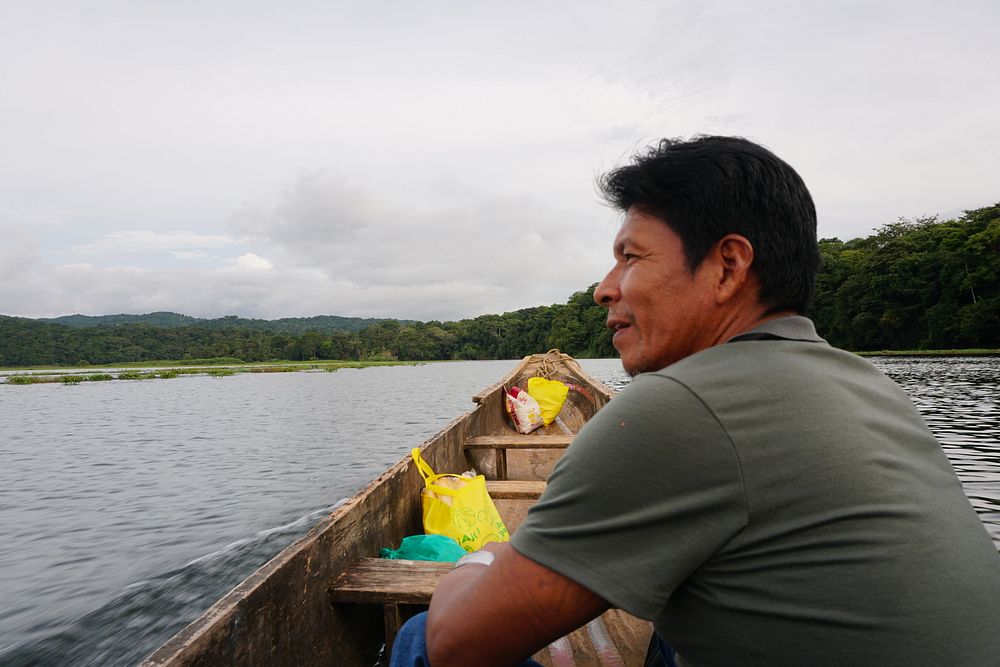
Mining Faces Resistance
It hasn’t only been gold miners, hunters, and farmers that have ravaged the forests. The Canadian company First Quantum Minerals owns and operates the Cobre Panama mine, one of the world’s largest copper mines, located right in the middle of the rainforest. Despite opposition, the mine has been granted an extension of its permit to continue excavating the forest and expand its area. The mine also requires large amounts of water, and beyond the environmental and social concerns, its water consumption directly conflicts with the country’s other interests, including economic ones, as the Panama Canal and Panama City face water shortages. This is particularly problematic in a time of record drought. There have therefore been large demonstrations in the country against the extension of the mine’s contract and the expansion of the area where it operates, with protesters blocking the mine’s shipping port.
Thus, it was welcomed by many environmental activists and Indigenous peoples when the country’s Supreme Court recently ruled the contract between Cobre Panama and the government unconstitutional. Panama’s president, Laurentino Cortizo, has announced that the mine must indeed close due to the ruling, though time will tell what will actually happen.
Many of the Indigenous peoples’ territories in Panama are still not officially recognized by the state, and many Indigenous peoples continue to see the struggle to resist the expansion of agricultural areas and other resource exploitation within their territories as an ongoing fight. For this reason, Forests and the World continues to support and collaborate with local partners and Indigenous peoples who advocate for their collective territorial rights, which benefit not only the Indigenous peoples but also the climate, biodiversity, and Panama’s life-giving waters.
